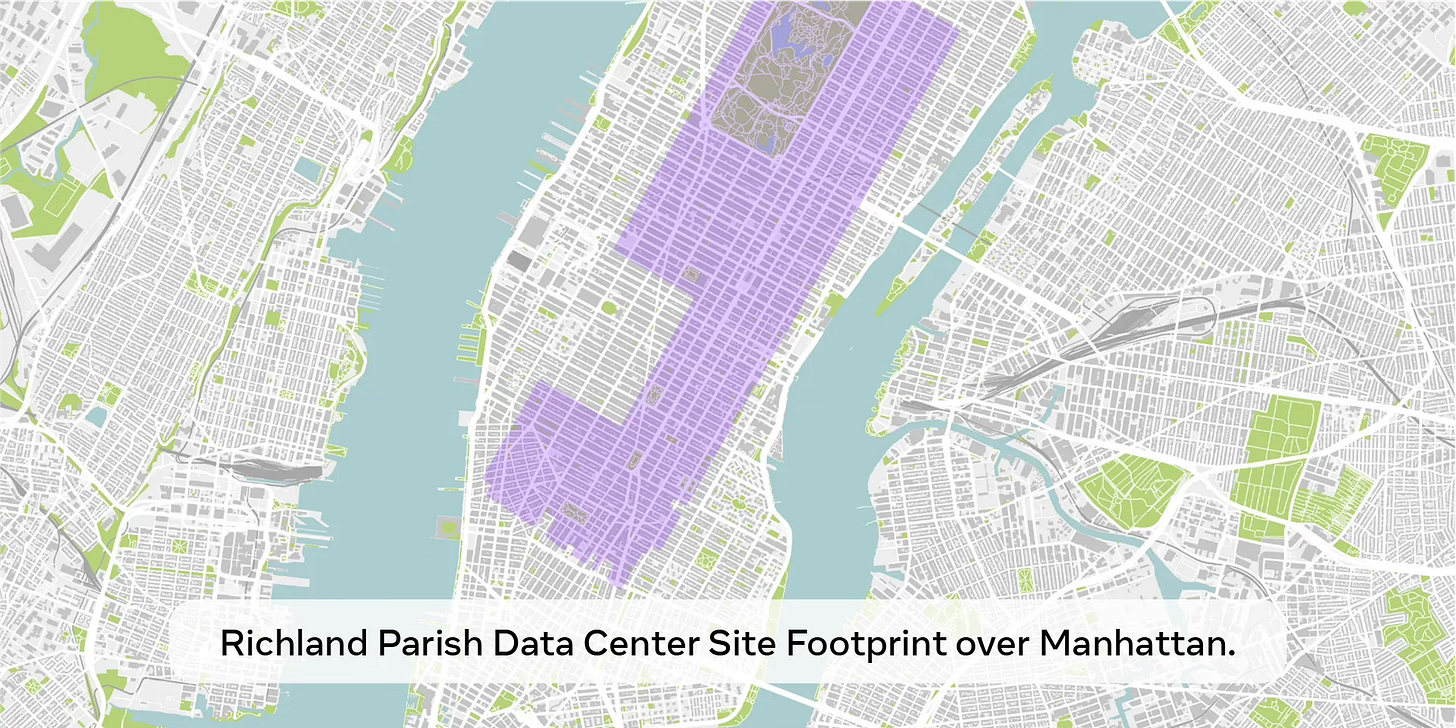
Yesterday, Mark Zuckerberg announced his most audacious pivot yet. In an interview that sent tremors through the industry, he pledged a capital expenditure of $60-65 billion for this year alone to build artificial general intelligence (AGI).
Delivered with the quiet confidence of someone who believes the future can be brute-forced into existence, it was less a business plan and more a declaration of sovereign intent.
Listening from here in the UK, it was hard not to feel a sense of vertigo. This is a plan, funded by the still-immense profits from Instagram and Facebook, to construct a privately owned intelligence that would fundamentally alter the balance of global power.
To understand the gravity of this moment, we must resist the temptation to analyse it purely as a technological endeavour. This is about power.
The ghost of the Metaverse
Before we look forward, we must look back. It’s impossible to analyse this pivot to AGI without seeing the still-smouldering ashes of the Metaverse. That project, into which Meta poured well over $30 billion, was a near-perfect case study in unaccountable leadership.
It was a vision pursued with religious fervour inside the company but met with widespread public indifference.
The failure of the Metaverse is crucial because it reveals a pattern and a willingness to burn capital on a scale rivalling government budgets, all without meaningful external oversight. That same leadership is now embarking on a project with stakes that are orders of magnitude higher.
An all-or-nothing bid
To understand this move, you have to understand Meta’s recent history of defeat. After ceding platform control to Apple and Google in the mobile era, this is Meta’s all-or-nothing bid to own the next, and perhaps final, computing platform.

The goal is to control the foundational infrastructure on which AGI runs, and to set the terms of our access to it.
This is a desperate arms race, capped with a rallying cry of “Let's go build!”, complete with a flexed-bicep emoji. Meta’s new Superintelligence Labs, staffed with engineers poached from Google DeepMind and OpenAI, are in a state of frantic catch-up, reportedly deploying makeshift tented data centres and offering compensation packages in the hundreds of millions.
Zuckerberg is betting his entire company on a show of overwhelming force.
The true price of superintelligence
The headline figure of “$60-65 billion in capex this year” is designed to stun us into submission. But the real costs are hidden from view, measured not in dollars but in data, water, and human dignity.
First, this ambition will be fuelled by a voracious, planetary-scale appetite for data. Our data.
Every conversation, every image, every creation, all scraped and fed into a machine over which we have no democratic control. The lifeblood of these models is the digital exhaust of our lives, repurposed to create a system that will ultimately answer to a boardroom in Menlo Park.
Next, it will be powered by a colossal hardware build-out. Zuckerberg himself stated they will “bring online ~1GW of compute in '25” alone. To house the more than 1.3 million GPUs he promised by year's end, the first of these vast data centres, Prometheus, is set to come online in 2026. Another, Hyperion, could eventually draw five gigawatts of power, equivalent to that of a small nation.
The environmental toll of this, the colossal energy consumption and the estimated 1.7 trillion gallons of water the global AI industry could consume annually by 2027, is hand-waved away as a necessary expense.
Finally, it will be built upon what leading tech journalists like Karen Hao have termed the “hidden human supply chain”; globalised gig-workers, often in the Global South, paid a pittance to perform the traumatic labour of data labelling, sifting through toxic, violent, and hateful content to sanitise these models for public consumption.
This is the unseen human subsidy that makes the dream of clean, intelligent AI possible.
The open source Trojan horse
Zuckerberg is keen to wrap this project in the comforting language of open source, just as Meta has done with its Llama models. But this is a masterclass in strategic deflection, not altruism.
By open sourcing the models, Meta commoditises the software layer where its rivals compete, encouraging a global community of developers to build entire ecosystems around its technology for free. This creates the appearance of democratisation while consolidating Meta’s power in the two areas that truly matter.
The proprietary data it holds, and the monumental, almost unassailable compute it is now assembling. It’s a gambit to let the world build the palace, while Meta keeps the keys to the kingdom.
A privatised Manhattan Project
What we are witnessing is the launch of a privatised Manhattan Project, but one with no state oversight. It is being framed not just as a corporate goal, but a national one. Zuckerberg explicitly stated the project will “extend American technology leadership”, co-opting the language of geopolitics to justify a private technological coup.
A single company, effectively controlled by a single founder, has decided to pursue a technology that even its most ardent proponents admit carries immense and unpredictable risks. Who gave it the right to even try?
As we stand on the precipice of this new era, it feels as though we’ve outsourced the most consequential decision in human history to a handful of executives. The pursuit of AGI is a profound political and philosophical challenge. It raises questions about what it means to be human, who holds power, and what kind of future we want to build.
These are not questions that should be answered by the logic of the market or the ambitions of one man. Yet, the debate is being framed as an inevitability, a technological destiny we have no choice but to accept.
Who gets to decide if a privately owned god is a future any of us should want?
Hi, I'm Miriam - an AI ethics writer, analyst and strategic SEO consultant.
I break down the big topics in AI ethics, so we can all understand what's at stake. And as a consultant, I help businesses build resilient, human-first SEO strategies for the age of AI.
If you enjoy these articles, the best way to support my work is with a free or paid subscription. It keeps this publication independent and ad-free, and your support means the world. 🖤







The other monkeys on the rock of tech billionaires won't allow this one to win.